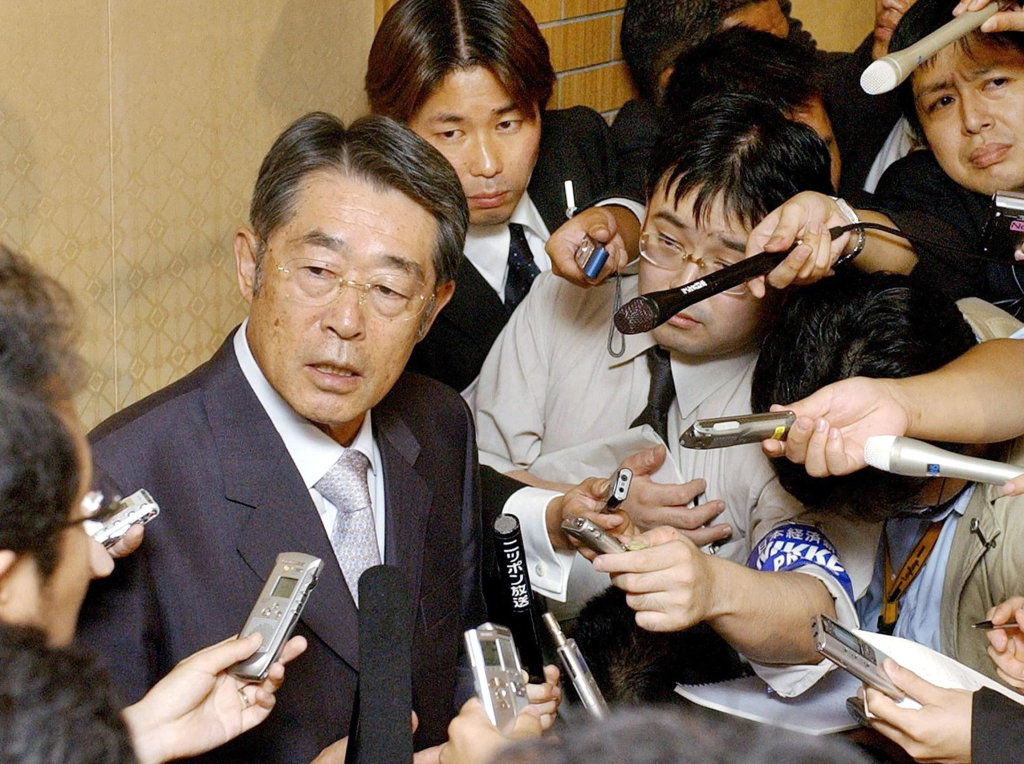The Rise and Fall of Yoshiaki Tsutsumi, the Billionaire Who Once Owned a Sixth of Japan
In the late 1980s, a single man stood atop the world’s financial hierarchy. His name wasn’t Gates, Buffett, or Slim. It was Yoshiaki Tsutsumi—a name that meant power, secrecy, and unimaginable wealth in Japan. At his peak, Tsutsumi controlled a staggering one-sixth of Japan’s land, oversaw railways, luxury hotels, ski resorts, and even a professional baseball team.
Forbes named him the richest man alive for eight consecutive years. And yet, within a decade, his empire would disintegrate, leaving behind one of the most dramatic wealth collapses in history.

Born Into a Divided Dynasty
Yoshiaki Tsutsumi was born in 1934, the son of real estate magnate Yasujirō Tsutsumi and his mistress. He grew up in a family fractured by multiple relationships, with six half-siblings from different mothers. At just seven years old, he met his half-brother Seiji for the first time, and an instant rivalry sparked—a tension that would one day shape Japan’s corporate landscape.
When their father died in 1964, the business empire was split. The elder brother, Seiji, received the department stores and founded what became Credit Saison. Yoshiaki, then only 30, inherited Seibu Corporation, the sprawling conglomerate that included railways and resorts. The split was headline news: two brothers, two empires, and a brewing feud that would ripple through Japan’s economy.
The Shadow Emperor of Seibu
Unlike his flamboyant brother, Yoshiaki ruled in secrecy. He rarely gave interviews, forbade company spokespeople from sharing information, and operated his empire like a personal fiefdom. Employees described a culture of fear so intense that some reportedly vomited before inspections, terrified of displeasing him.
Tsutsumi’s power came not just from his assets but from his manipulation of ownership. Japanese law required that major shareholders hold less than 80% of a company’s stock to remain listed. On paper, Seibu reported 64%. In reality, Tsutsumi controlled 88%, using falsified shareholder records and hidden entities to maintain dominance.
By the late 1970s and 1980s, his reach was extraordinary. He developed luxury resorts, expanded the railway empire, and in 1979 bought the Seibu Lions baseball team despite having no interest in the sport. When Forbes declared him the world’s richest person in 1987, his fortune was estimated at $20 billion—unmatched at the time.
The Olympics and the Peak of Power
Yoshiaki Tsutsumi was not just a businessman; he was a political force. As head of Japan’s Olympic Committee, he leveraged his influence to secure the 1998 Winter Olympics for Nagano, where—unsurprisingly—Seibu owned numerous businesses. Ski resorts and hotels in the region stood to benefit enormously.
Environmentalists protested as protected forests were cut to build new ski runs. Publicly, Tsutsumi stepped down from the committee in 1990, but he continued to control operations from behind the scenes. For a while, it seemed like his empire would only grow richer.
The Bubble Bursts
Then came the 1990s. Japan’s asset bubble collapsed, and real estate prices—the backbone of Tsutsumi’s empire—tumbled. His sprawling network of resorts, hotels, and land holdings lost value almost overnight.
In 2002, Japanese authorities finally moved in. Investigators discovered what had long been whispered in business circles: Seibu’s shareholding records were fraudulent. The Tokyo Stock Exchange delisted the company, and two Seibu executives tragically took their own lives in the fallout.
Tsutsumi himself resisted stepping down, clinging to control until March 3, 2005, when police arrested him at age 70. He pled guilty to securities fraud and was handed a suspended 30-month prison sentence and a modest fine of five million yen—about $50,000. For a man once worth billions, it was a symbolic punishment for an empire’s collapse.
From Richest Man Alive to Forgotten Cautionary Tale
By 2007, Forbes struck Yoshiaki Tsutsumi from its billionaire list entirely. The man who once owned 1/6 of Japan’s land, who terrified employees and maneuvered in the shadows of boardrooms, had fallen into obscurity.
His story is a reminder of the fragile nature of unchecked ambition. In his prime, Tsutsumi was the ultimate symbol of Japan’s bubble-era excess, a quiet titan who played by his own rules. But those same rules—built on secrecy, intimidation, and deception—became the foundation of his ruin.
From the heights of $20 billion to the depths of disgrace, Yoshiaki Tsutsumi’s legacy is not one of lasting wealth or admiration. It is a cautionary tale of how absolute control and opacity can turn a real estate empire into a financial house of cards, waiting for the first tremor to bring it all down.
Rememberence of 30 years in1995″ The hidden world of Japan richest family ” book I read by Lesley Downer. 10year later, 2006 to 2008, I got JICE schlorship getting chance to study Ritsumeikan University, kusatsu Shiga. The original land of Omi Shonen prefecture, Yoshiaki Tsusumi father birth place. Dream come true. I intouched with Biwako, Prince hotel, Seibu shopping mall, and train line.
Rememberence of 30 years in1995″ The hidden world of Japan richest family ” book I read by Lesley Downer. 10year later, 2006 to 2008, I got JICE schlorship getting chance to study Ritsumeikan University, kusatsu Shiga. The original land of Omi Shonen prefecture, Yoshiaki Tsusumi father birth place. Dream come true. I intouched with Biwako, Prince hotel, Seibu shopping mall, and train line.